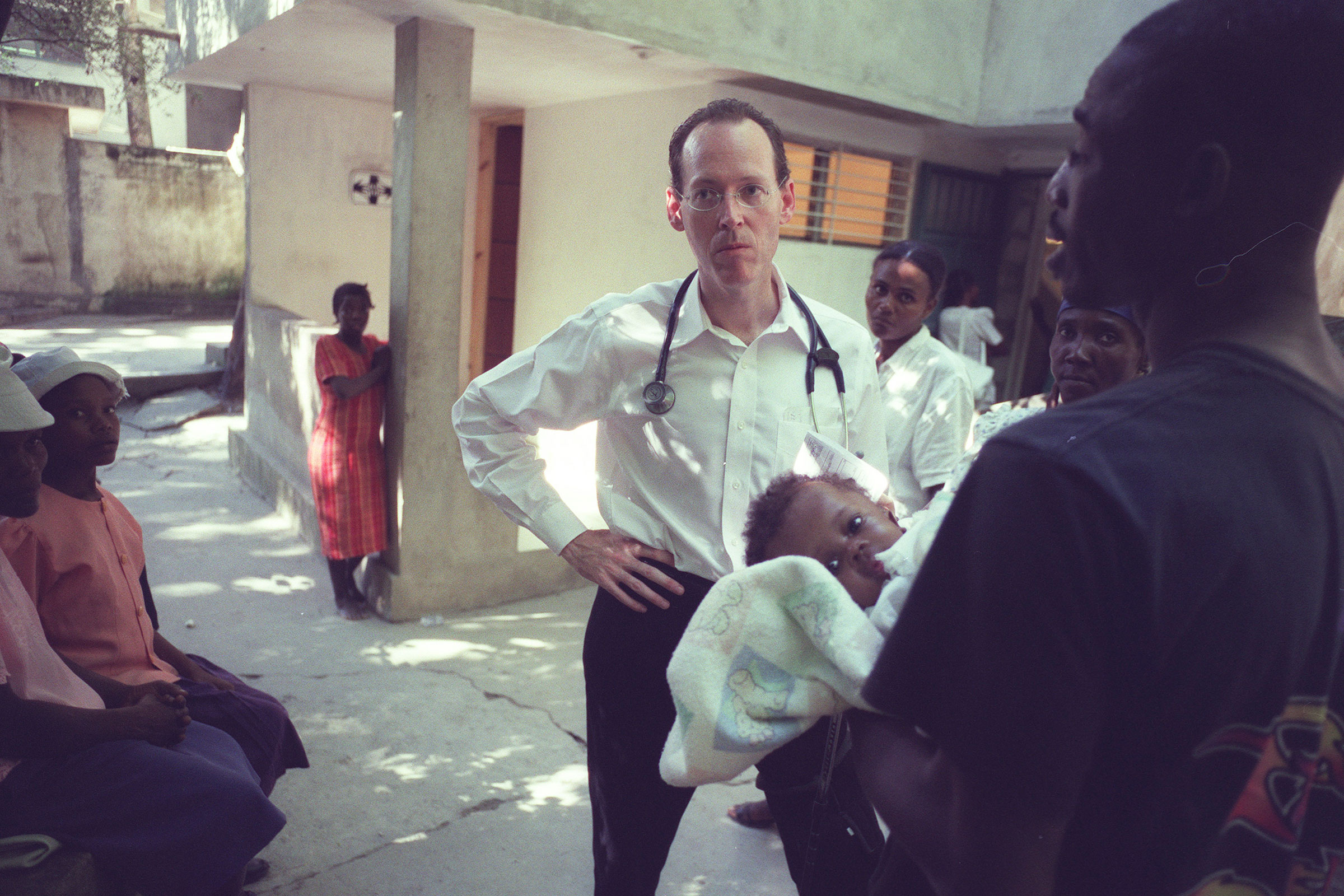
Dr. Paul Farmer, who died unexpectedly on Feb. 21 at the age of 62 in Rwanda, was one of the most extraordinary people I have ever known. As co-founder of the global health and social-justice organization Partners in Health, Paul spent more than 30 years fundamentally changing the way health care is delivered in the most impoverished places on earth.
Along the way, his fine mind, big heart, and relentless, infectious drive to do good—and have a good time doing it—inspired countless others to follow his example.
While still a student at Harvard Medical School in the 1980s, Paul and his colleagues opened a one-room clinic in remote Cange, Haiti, where they not only cared for local residents, but also trained a team of community health workers to serve the surrounding areas. After he graduated, he practiced medicine in the U.S. for a few months a year to pay his bills, and devoted the rest of his time to the clinic in the Haitian highlands.
He lived there in a simple home with a tin roof, concrete floors, and no hot water, not so different from the converted bus he grew up in with his parents and five siblings in Florida.
Within a few years, the clinic’s work gained worldwide notice for bringing tuberculosis under control in the area, at about 1% the per-patient cost in the U.S. Paul and his colleagues then achieved similarly impressive results against HIV/AIDS. Today, Partners in Health operates 16 health facilities in Haiti, including a teaching hospital, and employs a local staff of nearly 7,000. They also operate in 11 other countries, including Rwanda, where they partnered with the government to rebuild the nation’s health system, which had been destroyed during the genocide. Their facilities serve millions of people a year, most of whom live on less than a few dollars a day.
My family is profoundly grateful to have long benefited from Paul’s many gifts, going back to the time Chelsea read his work at Stanford, reached out to him, and gained his mentorship and friendship. I’m honored to have worked closely with him in Rwanda through the Clinton Health Access Initiative, and in Haiti, first in bringing treatment to HIV/AIDS patients, and then after the 2010 earthquake when we led the U.N. Office of the Special Envoy for Haiti. For 20 years, I watched him make everything he touched better with his hardheaded evaluation of each and every problem at hand, and his ardent conviction that even in the poorest places, even in the face of dysfunctional politics and violence, he could make things better.
Paul treated every person he met with genuine compassion, kindness, and dignity. He saw every day as a new opportunity to teach, learn, and serve. It was impossible to spend any amount of time with him and not feel the same. He also managed to become a wonderful husband, father, son, brother, colleague, mentor, and friend. His constant kindness to, and support for, Chelsea as she built her own career in public health is just one of hundreds of examples of that friendship.
To be his friend was a gift of grace. He was angry about the extreme inequities in health care and brought the consequences of them home in his powerful books. But when in action, he sought to convert, not condemn. The only time I ever saw him mad was when he saw people taking credit for what others did. His way was to share credit and to inspire and empower others.
Paul’s passing is an immense loss to the world, and heartbreaking to the family, friends, and colleagues who loved him. But his voice still rings in our ears. All our lives are passing, but the purpose of living endures: to lift others and empower them to live and work just as he did—with love, gratitude, and joy.
More Must-Reads from TIME
- Donald Trump Is TIME's 2024 Person of the Year
- Why We Chose Trump as Person of the Year
- Is Intermittent Fasting Good or Bad for You?
- The 100 Must-Read Books of 2024
- The 20 Best Christmas TV Episodes
- Column: If Optimism Feels Ridiculous Now, Try Hope
- The Future of Climate Action Is Trade Policy
- Merle Bombardieri Is Helping People Make the Baby Decision
Contact us at letters@time.com